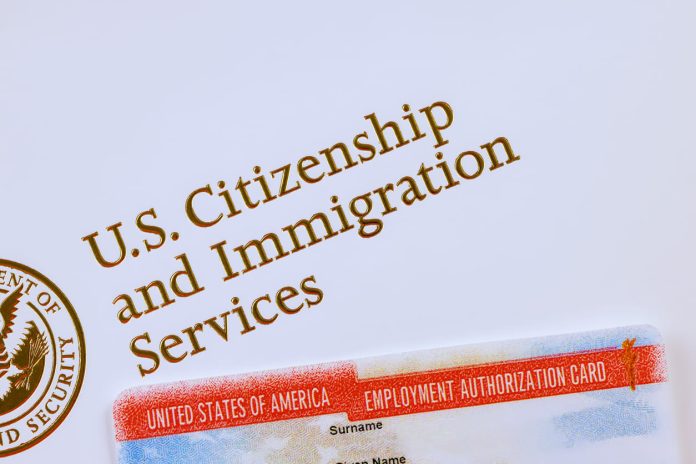Many immigrants dream of becoming U.S. citizens through naturalization but delays in the process can turn that dream into a frustrating ordeal. These delays prolong an applicant’s journey to full citizenship and may disrupt their personal and professional plans. This article highlights the primary causes of naturalization delays and explores how applicants can address these issues, including filing legal actions against the U.S. Citizenship and Immigration Services (USCIS).
Understanding the Naturalization Process
Naturalization is how lawful permanent residents (green card holders) become U.S. citizens. Applicants must meet age, residency, and good moral character requirements. Once requirements are met, the next process is the submission of the naturalization application along with supporting documents and fees. USCIS collects fingerprints, photographs, and a signature to conduct background checks. Applicants are also tested on their English proficiency and U.S. civics knowledge. Successful applicants need to attend a ceremony to finalize their citizenship. While the process is designed to be straightforward, delays can occur at any stage, leaving applicants in a state of uncertainty.
Common Causes of Naturalization Delays
- Incomplete or Incorrect Applications: Errors in Form N-400, missing documentation, or incorrect fee payments can lead to processing delays. USCIS may issue a Request for Evidence (RFE) to address these issues, further prolonging the timeline.
- Background Check Complications: USCIS conducts meticulous background checks. If an applicant’s name matches someone on a watchlist or if they have unresolved criminal or immigration violations, additional review may be required.
- Scheduling Delays: High application volumes and understaffed USCIS field offices can result in long wait times for appointments, interviews, and oath ceremonies.
- Pending Criminal or Immigration Matters: Any unresolved legal issues, such as arrests or ongoing court cases, can delay the naturalization decision. USCIS may place the application on hold until these matters are resolved.
- Administrative Processing: Some applications require extra scrutiny due to discrepancies or additional verification needs. This step, known as administrative processing, can take months or even years.
- External Factors: Events such as the pandemic, budget constraints, or changes in immigration policy have caused significant delays in USCIS operations, compounding backlogs across all application types.
What to Do If Your Application Is Delayed
For applicants experiencing prolonged delays, there are avenues to seek resolution:
- Contact USCIS: Use the USCIS online case status tool or contact their customer service hotline to inquire about your application. You can also submit a case inquiry if your case is outside the normal processing time.
- File a Lawsuit: If delays are unreasonable and all other efforts have failed, applicants can file a 1447(b) lawsuit in federal court to compel USCIS to act on their application.
According to Adrian Pandev, an immigration attorney at Pandev Law, LLC, “In case the applicant has passed both the civics and English language tests, and the requirements for naturalization have all been met, there should be no reason to experience any delay in the final decision with regards to the case. However, If USCIS does not issue a decision within 120 days after the interview, the applicant can opt to file a 1447(b) lawsuit.”
Suing USCIS: Filing 1447(b) Lawsuit
When USCIS delays become excessive, legal action may be your best option. Filing of 1447(b) Lawsuit is a tool to hold the agency accountable. Here’s how it works:
- What is 1447(b)? 1447(b) is a federal statute that requires USCIS to respond to your naturalization application within 120 days after your naturalization interview.
- When Can You File? You can file a 1447(b) lawsuit if your case has been pending beyond reasonable processing times, typically more than 12 months, without explanation. Delays caused by administrative backlogs or unnecessary scrutiny may qualify as unreasonable.
- Steps to File:
- Consult an experienced immigration attorney to assess your case.
- Gather evidence of your efforts to resolve the delay, such as USCIS inquiries and responses.
- File the lawsuit in the federal district court where your current residence is. The court will require USCIS to respond and justify the delay.
- What Happens After Filing? Usually, filing a lawsuit prompts USCIS to act on the delayed case to avoid further litigation.
Preventing Delays: Best Practices
To minimize the risk of delays in your naturalization process, follow these best practices:
- Submit a Complete and Accurate Application: Double-check Form N-400 and include all required documents. An experienced attorney can help identify and address potential issues before submission.
- Stay Proactive: Monitor your case status online and respond promptly to USCIS requests for additional information.
- Prepare Thoroughly for the Interview: Ensure you are well-prepared for the English and civics tests to avoid unnecessary rescheduling or additional reviews.
- Seek Legal Guidance Early: An immigration attorney can help you navigate complex situations and ensure your application is handled efficiently.
Conclusion
Delays in the naturalization process can be frustrating and disruptive, but applicants have options to address them. Understanding the causes of delays and proactively seeking solutions—whether through USCIS inquiries or legal action—can help applicants achieve their goal of becoming U.S. citizens. If delays persist, consulting an experienced immigration attorney and exploring legal remedies, such as filing 1447(b) lawsuits, can ensure USCIS fulfills its duty in a timely manner.





































